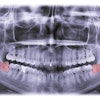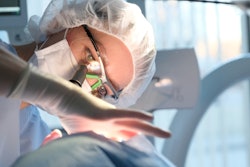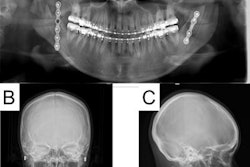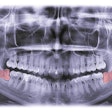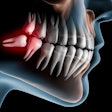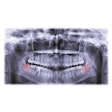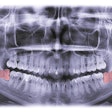A breakthrough device and technique using tape made from pig tissue to seal severed nerves may transform how oral surgeries are performed and patients recover, according to a news release from Virginia Commonwealth University (VCU).
The tiny biologic wrap known as Nerve Tape aims to offer a better way to treat severed nerves without significant complications or impaired quality of life, according to the release.
Dr. Jonathan Isaacs, a professor at VCU School of Medicine’s Department of Orthopaedic Surgery and chair of its division of hand surgery, wrestled with how surgeons could ensure a full recovery and restore quality of life for surgical patients without permanent nerve damage. For patients undergoing surgery, 50% had a chance for a full recovery.
“Fifty percent. That’s been the reality for decades,” Isaacs said. “That wasn’t good enough.”
In some surgical procedures, severed nerves are sutured very carefully together by surgeons using a microscope and microsurgical techniques, a process that is laborious and can sometimes result in misalignment of the nerves.
Yet for many patients who undergo surgery, postsurgical neuropathy can mean lifelong paresthesia, pain, or other adverse effects.
Isaacs got the idea for Nerve Tape by sketching rough ideas about how nerves could be joined without using sutures. Isaacs experimented further using fishing hooks and, later, hooks from a fine jewelry designer.
Isaacs, with the support of VCU, collaborated with a medical device engineer to create Nerve Tape, a device that uses microhooks embedded between layers of tissue matrix from the small intestines of pigs to microsuture nerve endings.
 The Nerve Tape device consists of microscale Nitinol hooks embedded within a flexible biological backing.Image and caption courtesy of Eberlin et al. Licensed under CC BY 4.0.
The Nerve Tape device consists of microscale Nitinol hooks embedded within a flexible biological backing.Image and caption courtesy of Eberlin et al. Licensed under CC BY 4.0.
NerveTape has been used in more than 2,500 surgeries, from breast reconstructions to oral surgery. According to one study in which 12 surgeons (six hand microsurgeons and six trainees) performed delicate nerve repairs on cadaver forearms, Nerve Tape offered “superior precision, repair speed, and tensile strength compared with microsuture neurorrhaphy.”
“It’s humbling,” Isaacs said in the article. “If this becomes the new standard, it won’t just improve surgery. It will improve lives.”
Learn more about NerveTape below.
